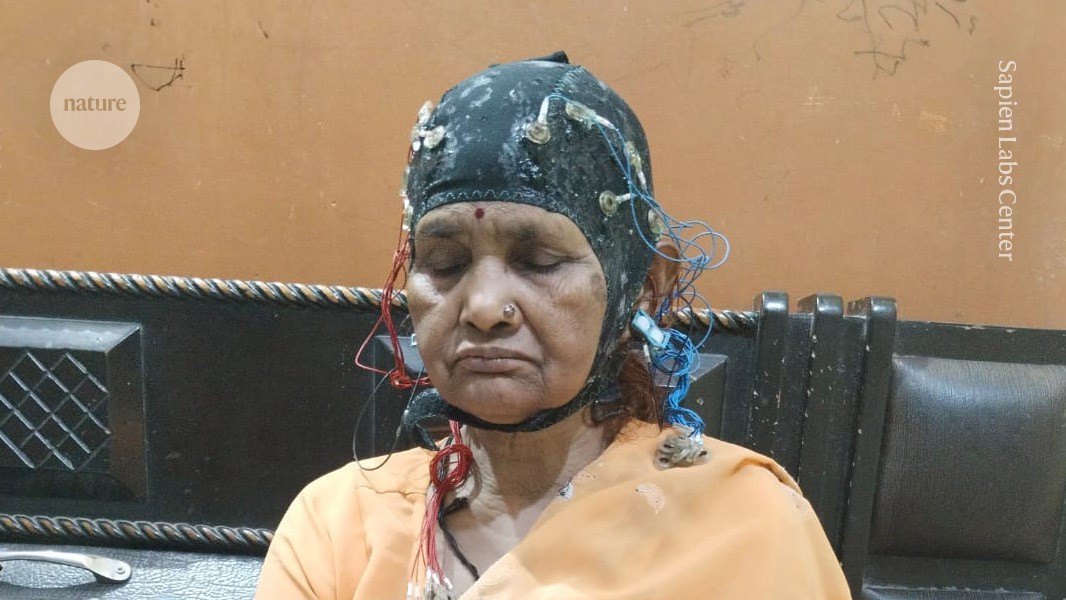
Field researchers recorded brain activity from thousands of people in various settings in India and Tanzania.Credit: Sapien Labs Center for Human Brain and Mind
A team of 24 people in India and Tanzania with no previous experience has collected brain-activity recordings from nearly 8,000 people in schools, offices and open-air spaces to create the largest data sets of their kind in Africa and Asia.
The approach, described in eNeuro on 21 July1, could help to expand neuroscience studies in low- and middle-income countries (LMICs) — regions that have long been under-represented in human brain research.
The majority of brain studies focus on industrialized, Western populations and involve expensive lab-based imaging tools. Researchers in LMICs often have limited funds, lack trained technicians and have difficulties in recruiting participants.
What’s so special about the human brain? A graphical guide
To address some of these problems, researchers trained non-specialists in each country — 12 people in Tanzania, 12 in India — to record the brain’s electrical activity using portable headsets fitted with 16 electrodes that are placed on the scalp, a technique known as electroencephalography (EEG). Over 30 weeks, the trainees collected data from a wide range of people in their countries with different lifestyles and socio-economic backgrounds, ranging from urban office workers to members of Tanzania’s Hadzabe hunter-gatherer group. Participants also responded to surveys about factors including their medical history, mental health, sleep, diet, lifestyle and use of technology. The study describes recordings from 3,413 people in India and 2,418 people in Tanzania.
EEG recordings “offer the opportunity to look very easily across diverse populations, because it’s a technique that’s portable, it’s cost efficient, it doesn’t take a huge amount of time”, says co-author Tara Thiagarajan, founder and chief scientist at Sapien Labs, a non-profit neuroscience centre based in Arlington, Virginia. The information collected in the study will allow researchers to explore “how the environment impacts the population’s brain physiology, and how diversity of brain physiology relates to different kind of mental outcomes”, she adds.



